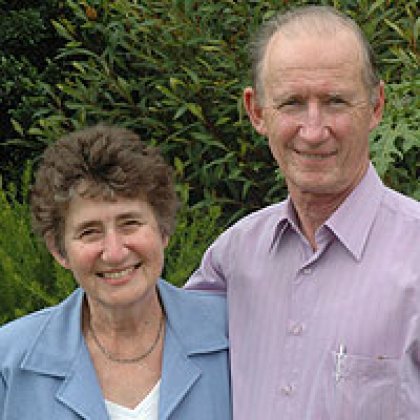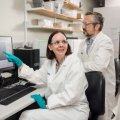
Caring for the environment is an important part of the mission of the Church, says recent UQ PhD recipient Clive Ayre.
After spending most of his life working in and studying the church, Dr Ayre has just completed his PhD on religion's role in tackling issues such as climate change.
"It's becoming such an important issue in general that it seems logical that churches get involved, especially since it stems from the most basic theology," he said.
Dr Ayre said his study had significant implications for social justice in addition to ecological issues.
"Part of the problem has been that Christian theology and mission has tended to be anthropocentric, and along with the population at large, to have taken the natural world very much for granted," he said.
To gauge the level of eco-theology and eco-mission practices in Australia, Dr Ayre created a targeted survey that was distributed to 90 groups and individuals, and conducted a series of interviews.
"From that, I was able to build up quite a good picture," he said.
"Part of my work looked at such things as emerging themes, how eco-congregations form, why they sometimes fail, and whether they have a mission statement."
His research also saw him travel to the UK to see what eco-friendly measures the churches had taken, and how these compared to those in Australia.
"There are a number of variations between Australia and England, mainly relating to issues such as heating and cooling, and the UK has a focus on local issues, such as cleaning up graveyards and recycling," he said.
"One thing I did like in Britain was that churches have a good support network available, and are able to work for eco-awards."
Dr Ayre said that Australian churches at all levels are increasing looking at ways of helping to care for the natural environment, in co-operation with other groups.
"Some are into local, practical issues, such as waterway cleaning in Sydney, and there are a number of those where people get their hands dirty, planting trees and gardens.
"In some cases environmental audits are being conducted, and the use of solar power is being explored.
"There are also some who include ecology in worship, have education programs, and encourage lifestyle integrity of members.
"My own congregation has an ecological mission statement and is starting to implement it, but many other groups don't know how to begin. My research gives them a theological background and a practical way to be eco-friendly."
While science and religion have sometimes had a difficult relationship, Dr Ayre believes caring for the environment is one issue both sides agree on.
"With faith and science, I've argued that the main problems occur because there are fundamentalists on both sides of the equation who see their views as the only one, and they tend to distort the position of the other," he said.
"But the relationship between religion and science is a very productive one, and extending it to other faiths is a further step."
Dr Ayre also said that there was a lot of work to be done to encourage eco-theology education and eco-mission practices at various levels of the Church's life.
"Care for the environment is part of the churches' charter and mission, and while my research was mainly limited to Uniting, Anglican and Catholic Churches, many of the major faith perspectives are saying very similar things," he said.
"When you look beyond Christian religions, major world faiths are essentially on the same page with this issue. There is so much commonality. The official position is that faiths want to save the planet, but unfortunately this doesn't always filter through to all the levels."
Media: Clive Ayre (07 5499 6025), or Amanda Sproule at UQ Communications (07 3365 2339).
.jpg)



